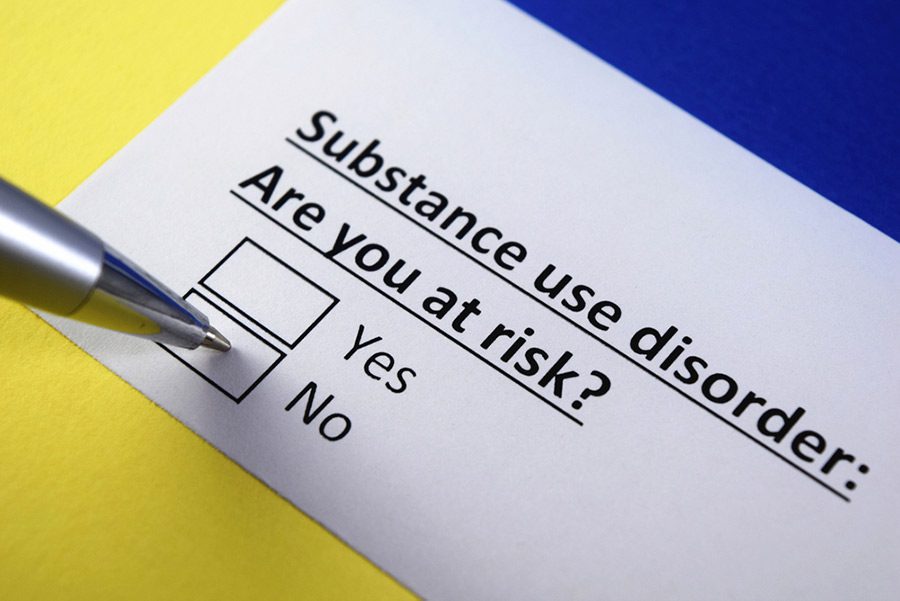How Does Addiction Start
How does addiction start, and why do only a minority of people who start abusing drugs go on to develop full blown substance use disorder? This is an incredibly complicated question, and it’s one that we do not still don’t know the whole answer to.
However, what we do know is that certain risk factors can increase a person’s chance of illicit drug use and of ultimately developing drug addiction. We also know a fair bit about how addictive substances can change a person’s brain chemistry in a way that ultimately makes drug use more and more appealing, which can eventually result in drug dependence.
This article will explore both of these topics, hopefully giving concerned family members greater insight into the complex disease of drug addiction and a greater understanding of the path to a brighter future.
Risk Factors For Substance Abuse
Though some people may assume that only the drug involved is what caused addictive behavior in someone who abuses drugs, the truth is that addiction more accurately results from a complex interaction between a person, a drug, and that person’s environment.
While not everyone with drug addiction suffers from these risk factors and not everyone with these risk factors develops drug addiction, recent research suggests that, as a group, people who developed addictions are measurably different from those who did not in a number of meaningful ways.
For instance, a person’s risk of alcoholism and drug dependence is significantly higher if they also suffer from other mental health issues, such as depression, anxiety, or eating disorders. This is because people with mental disorders may use illicit drugs to help relieve their symptoms instead of visiting a qualified mental health professional for a more appropriate prescription medication.
This will only worsen symptoms and overall mental health in the long run as the person becomes more and more dependent on these harmful illegal drugs just to function. The National Institute on Drug Abuse suggests that about half of those with a substance use disorder also suffer from mental illness, and vice versa.
Another major risk factor for addictive behavior is a family history of drug addiction. This is thought to be partially because drug users who are parents may set a negative example as they suffer from addiction, abuse alcohol, and provide an unstable environment while their children are young. Children will “learn” that drug abuse is an acceptable way to deal with painful feelings, and will be at higher risk of experiencing trauma during their upbringing, another risk factor in and of itself.
However, family history is also thought to be such a powerful predictor of susceptibility to addiction because of genetic factors, especially in the case of specific drugs like alcohol, with the children of alcoholics being four times more likely to become alcoholics themselves. Family history could serve as a sign that a person will have a stronger reaction to an addictive substance, and may therefore be more motivated to keep using it even despite actual or potential negative consequences. To worsen matters, specific mental health issues that can trigger or exacerbate drug use may run in families as well.
Strong peer pressure to engage in psychoactive drug use is another major risk factor, as studies show that peer pressure is one of the most common reasons that teenagers report for using alcohol and other drugs. This is especially harmful when it creates the risk of early exposure, as people who start using alcohol and other drugs before age fifteen are three and a half times more likely than others to be dependent on drugs at age thirty-two.
There are also certain prescription drugs that come a particularly high risk of drug misuse, which can in turn progress to the use of other addictive substances. In particular, prescription drugs like opioid pain relievers exert such a powerful physical effect on brain chemistry that even some people who had no intent of abusing their prescription medication do eventually become addicted to it.
Because opiates work similarly on the brain’s chemistry to certain illegal drugs like heroin, which is basically a far more powerful version of the same drug, they can often serve as gateway drugs to these other substances, which are even more dangerous and addictive.
In particular, the National Institute on Drug Abuse suggests that more than twenty percent of people who use prescription opioids abuse them, and opioids serve as gateway drugs to heroin for four to six percent of those misusers.
The Science Of How Drug Addiction Begins

Drugs causing addiction basically all work on the brain’s system for reward related learning. The brain responds to substance abuse by releasing the neurotransmitter dopamine, particularly in the brain’s pleasure center, which is located in a collection of nerve cells lying underneath the cerebral cortex.
In a healthy brain, dopamine interacts with other brain chemicals to prompt someone to engage in behaviors that were associated with human survival and sustaining life during the early ages of human evolution. For instance, eating or a sexual encounter generally promotes dopamine release, as do secondary learned rewards like socializing, shopping, playing games, or listening to music.
Though these behaviors stimulate dopamine release, when someone consumes drugs, they exert a far stronger dopamine signal. This is what makes addictive drugs so pleasurable to use, but that’s not the only way that drugs affect the brain. Physical addiction can develop when, over time, if a person is habitually abusing drugs, drugs alter a person’s brain chemistry so that the brain comes to “expect” the drugs.
The brain will get “used” to having more dopamine around, so it will need more and more dopamine just to function. This will result in the person needing to use drugs just to feel normal, and needing to use more and more of the drug if they want to get high. This creates a vicious cycle as tolerance is pushed higher and higher, and creates cravings as the brain tries to maintain equilibrium.
A deeper look at addiction and the brain includes areas involved in withdrawal symptoms as well as those involved in the increasing desire for drugs. Another part of the brain called the amygdala will send signals indicating that not using drugs is dangerous, which is why a person will feel anxious and irritable if they do not satisfy their drug craving. The National Institute on Drug Abuse offers a more in depth exploration of these ideas here.
Using The Marchman Act On Someone Who Has Lost Control Of Their Drug Abuse
Though early approaches to drug abuse involved punishing miscreants for their “selfish” behavior, we now know that drug addiction is a disease that requires treatment rather than a moral crime that requires punishment. The Diagnostic and Statistical Manual of Mental Disorders recognizes addiction as a legitimate mental health disorder, and thinking of it that way allows us to maintain empathy for those who struggle with it rather than thinking of them as deliberately hurting themselves and those around them with their behavior.
Overcoming addiction is always possible, and therapy and support groups can help people with drug addiction start to make their way back toward a healthy life. The National Institute on Drug Abuse explains that addiction is a chronic but treatable disorder, and also explains how addiction treatment works to help patients stabilize and begin to change their mindset.
However, some people with drug addiction may be reluctant to begin treatment, as they may not be able to imagine life without drugs and may be fearful of experiencing emotionally and physically painful withdrawal symptoms, though these can often be managed by the appropriate use of medication in an appropriate treatment setting.
In these cases, and if trying to reason with the person is unsuccessful, it may sometimes be necessary to use the Marchman Act, a Florida law that allows for the involuntary commitment of a person who is so severely impaired by substance abuse that they are incapable of making a rational decision about their treatment.
If you would like to learn more about the Marchman Act, or about how one of our professional intervention counselors can guide you through the Marchman Act process, feel free to call us anytime at (833) 995-1007 or to contact us online anytime here.




